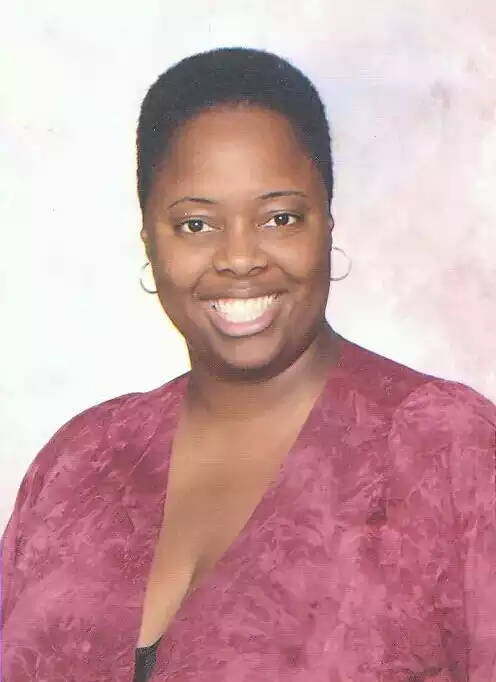
To extend our community outreach, the library partners with the many municipal, non-profit, and business organizations that make Princeton such an extraordinary town. This month, we spoke with Dr. Joy Barnes-Johnson, an educator at Princeton High School, who also serves on the boards of Paul Robeson House of Princeton and Choose. For a more detailed description of her work, please see how the YWCA highlighted her work when they honored her in 2021.
The library has collaborated on a number of projects with Dr. Barnes-Johnsons (or Dr. BJ as she is affectionately known by many). This month, we are collaborating on the African American Read In (AARI) and spoke about Black History Month – how she embodies these histories, and how they inform her work and her vision for the future.
Can you tell us a little more about who you are and how you are in the community?
My name is joy and I use the pronouns (she/her/we). If you know me, you get a sense of that. First of all, I generally write or type my name with a lowercase ‘j’ and the reason I do that is in part homage to bell hooks, because in your writing voice you want your words to speak louder than the history that you carry. I was gifted with the name “joy” by my mother, and it is a principle that I try to embody every day, and as a principle it has no capital.
As the self-proclaimed historian in her family, she has been collecting the seeds and stories shared by her family members for years and is starting to bring together the things that have been told, and not told, in those stories, weaving them together with the broader histories of the Black experience in America.
“I listen to and read the stories of my parents and grandparents – they left nuggets to reveal themselves like a Pandora’s Box or a kaleidoscope over time and my grandparents didn’t want us to carry any heritage of slavery with us, so it is interesting now to put the pieces back together … These stories are something that I want to preserve.”
Let’s talk about Black History Month – actually what do you prefer to call this time?
I prefer Black Heritage Month because our history is American history. Our heritage and culture belong to us. Black History Month was seeded when Carter G. Woodson started Negro History Week. He writes, “Not to know what one’s race has done in former times is to continue always as a child.”
Woodson wrote that it was to create a demand for Negro pictures and literature. To disabuse the Negro mind of the idea of inferiority, so to arrest internalized oppression. To increase understanding – a key principle of racial bias disruption: racism undermines all truth. He created the Journal of Negro History to help us all know more of our history.
So what we now call ‘social emotional learning’ he recognized then. If you have children who feel inferior, they aren’t going to perform well. If they can’t see examples of excellence and persistence, how will they know what is possible?
How has Black History Month changed since its inception?
It hasn’t. This is how I like to think about it. We have revolution and evolution. When revolution happens – (she draws a ‘flat spiral’), You are going around and around and turning stuff up – which is good, but it isn’t progress. In order to have progress you need descension and ascension. It has to be both – once a seed plants roots it can grow up. The seeding we have is that at least we have Black History Month on the calendar now, but we have not gone beyond the heroes and holidays approach .
James Banks, who speaks about multicultural approaches to education, notes that a very low level approach to any multicultural education is to talk about heroes and holidays – to make sure things appear on a calendar. I say this is ‘revolution’ – because we do this seasonally. So what would descension look like? It would be being reminded of the histories we were denied knowing in schools. Going deeper, picking up those books, and listening to our elders who were trying to provide a blueprint. (Look at holistic histories – look at Pauli Murray), who did the research and basically wrote the brief for Brown vs. Board of Education. It would be going back to trace the hand that actually wrote something. Asking who else was in the room, because people who were in the room were the ones shaping the discourse. The ground swelling beneath a single figure will catch the feet of those who walked alongside. Once something is properly rooted, (you can ascend). Having learned what people have already done, we all spring up from it, without killing it. Finding strength in the story and building something new. Building coalitions, tying yourself to something else that’s above ground. Developing beautifully mutualistic alliances.
Dr. JBJ wrote, Why We Need Black History Month in a time when Black Lives Matter and is working on a book about James Bond, Black educators and the 100-year burden of history-telling.
She was also recently interviewed by two students for their C.A.R.E. to listen podcast.
The Princeton Public Library also offers a Black History Month resource guide which is available here.
